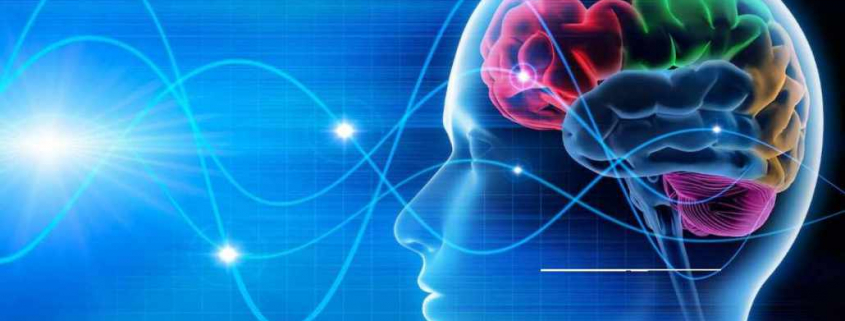Seizures and Alcohol Intoxication
Published on: November 23, 2021 | Updated on: December 3, 2025
What Does An Alcoholic Seizure Look Like?
The dangers of seizures and alcohol intoxication are very real. Learn about alcohol poisoning and the risk of seizures.
When it comes to the health risks posed by substances of abuse, the dangers of alcohol abuse are very high. Binge drinking can be life-threatening, and at the very least can cause seizures to occur.
Someone with an alcohol use disorder (AUD) who wishes to stop drinking faces the risk of seizures during detox. Seizures during detox can foretell the DTs, which can be fatal. This explains why alcohol detox must be so closely monitored.
Read on to learn about the risks of heavy drinking and the link between seizures and alcohol intoxication and detox.
What Are Seizures?
A seizure is a neural event during which the electrical system in the brain is disrupted. The seizure can last a few seconds up to several minutes, depending on the type of the seizure. The type of seizures most common among people who have abused alcohol is the grand mal or tonic-clonic nonfocal seizures.
These types of seizures occur in two phases:
Tonic phase. This is when the person loses consciousness and falls down. It only lasts about 15 seconds.
Clonic phase. Convulsions occur, during which the muscles begin contracting rhythmically. This phase lasts two minutes or less.
Symptoms of a grand mal seizure might include:
- Scream upon the onset of the seizure.
- Severe headache.
- Confusion
- Loss of bladder or bowel control.
- Being unresponsive after the convulsions.
The exact cause of seizures is still not known. Science has taught us that the brain’s nerve cells sync up in an unusual manner during a seizure. This causes the electrical system to become altered and for the nerve cells to all fire at once.
Can You Have Seizures While Drinking Alcohol?
It is not common to have a seizure when drinking a moderate amount of alcohol. Unless the person has epilepsy, low or moderate alcohol intake is not going to trigger a seizure. Alcohol-related seizures do occur when someone drinks excessively, as in binge drinking. Also, a person with a history of heavy drinking who attempts to stop cold turkey can also have seizures.
Binge Drinking and Seizures
Binge drinking is defined as consuming 5 or more alcoholic drinks within a short time frame. When someone drinks this much, their system becomes overwhelmed. This occurs because the liver can only process so much alcohol in an hour. What results is alcohol poisoning, when the toxins build up in the bloodstream.
One of the symptoms of alcohol poisoning is having a seizure. The seizure can cause the person to collapse and go unconscious for a short time. This can happen suddenly and may lead to a serious injury, such as hitting the head against a hard surface.
Alcohol Withdrawal and Seizures
Seizures are mostly linked with the alcohol detox and withdrawal process. During detox, the body expels the remnants of the alcohol from the bloodstream and tissues over a period of about a week. Seizures can occur during the peak phase or on day 3 of the detox process.
Having a seizure during detox is a warning sign for the possible onset of the DTs. The DTs are seen as a serious health emergency that requires medical intervention. During the DTs, the most common symptoms include:
- Severe confusion
- Seizures
- Profuse shaking
- Fever
- Psychosis
- High blood pressure
The DTs are most common among those who have been heavy drinkers for a long time. While it only occurs in about 5% of individuals going through detox, 5 – 15 % will die from it.
Safe Alcohol Detox
Because what happens during detox is hard to predict, it is always wise to stop drinking only with medical support. Medical detox offers a team of trained detox experts that will closely observe the withdrawal symptoms. If signs are pointing to severe symptom response, there will be 24-hour support.
While it is not possible to predict seizures during detox, the detox team will be aware of risk factors ahead of time. Risk factors include such things as the number of detoxes in the past, health history, and severity of the alcoholism.
During the alcohol detox, the team will provide the person with meds and mental health support throughout. These interventions can greatly reduce the risk of severe symptoms, and also help the person finish the entire detox process.
Treatment for AUD
To overcome an AUD, it is critical to follow up detox with a full-spectrum rehab program. An effective program will employ a wide array of treatment techniques. These are designed to work together to help the person change disordered behaviors and transition to a new sober lifestyle. Treatment includes:
Evidence-based therapies: These are therapies that have been studied and shown to be effective in treating AUD. These therapies assist the person to change their response to triggers by guiding them to a shift in thought patterns. CBT and DBT are examples of these techniques.
Group therapy. Peer group sessions offer added support and are a core element in rehab. These sessions provide a supportive space where they can share their stories, their fears, and their hopes.
Coping Skills. Learning about how addiction happens can help the person avoid relapse, so a relapse prevention plan is made. New coping skills are taught, which equip the person with the needed tools to help them carry out their plan.
Holistic activities. Learning some techniques to better manage stress in recovery include mindfulness, yoga, deep breathing, exercise, and art therapy.
The danger of seizures with severe alcohol intoxication is real. If you have a problem with alcohol, reach out to the addiction experts for help.
Journey Hillside Provides Safe Detox and Treatment for Alcoholism
Journey Hillside is an upscale treatment center that helps people safely detox the body from alcohol. Using evidence-based treatments and holistic methods, Journey Hillside can guide you toward a fresh new start in life. For questions about our program, please give us a call at (877) 414-1024.





